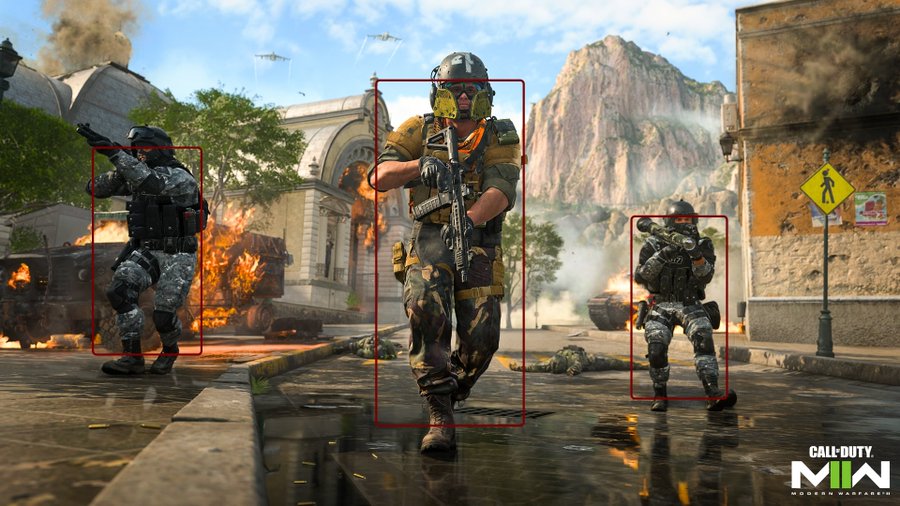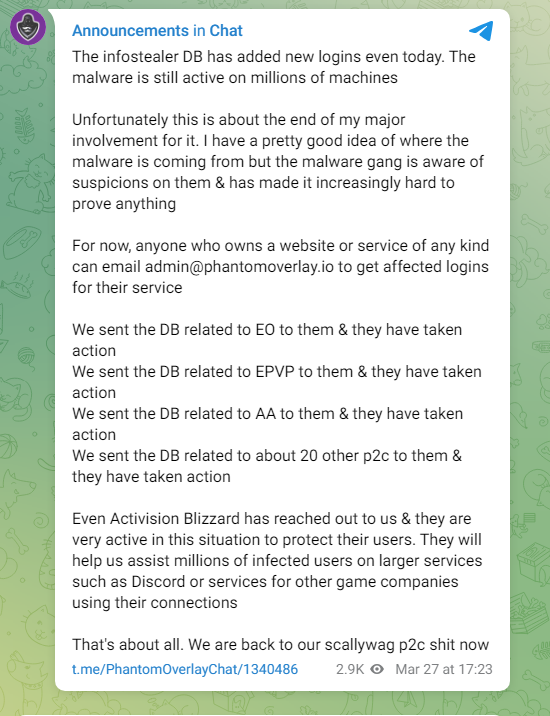- Victims report substantial Bitcoin losses from Electrum wallets, with total stolen amounts still unknown amid ongoing investigations.
- PhantomOverlay suggests malware source could be common gamer software like VPNs, marking a significant cybersecurity threat.
A new malware campaign, strikingly targeting video gamers, particularly those engaging in cheating practices, has emerged, causing considerable distress within the gaming community.

According to vx-underground, a prominent malware database, this sophisticated malware specifically preys on gamers utilizing cheat software, resulting in significant Bitcoin losses from their wallets. The disclosure, made in a recent post on March 28, brings to light the gravity of cybersecurity threats facing the gaming sector.
Over the past couple of days we have become aware of malware targeting gamers! More specifically, a currently unidentified Threat Actor is utilizing an infostealer to target individuals who cheat (Pay-to-Cheat) in video games.
A Call of Duty cheat provider (PhantomOverlay) was…
— vx-underground (@vxunderground) March 27, 2024
This malicious software campaign has alarmingly compromised over 4.9 million accounts, affecting users of Activision Blizzard and its game store Battle.net, as well as those on the gaming-focused trading site Elite PVPers and cheat software markets PhantomOverlay and UnknownCheats.
Victims of this malware have reported substantial cryptocurrency losses, particularly from their Electrum Bitcoin wallets, though the total amount of stolen funds remains undisclosed.

PhantomOverlay, in response to these reports on March 27, suggested that the number of hacked accounts might be exaggerated, noting that a significant portion of the logins in a scrutinized database were invalid.
You may be interested in: Kaspersky Issues Warning About New MacOS Malware Targeting Crypto Wallets
The source of the malware is speculated to be associated with widely used free or low-cost software among gamers, possibly including latency programs or VPN services. This incident has been labeled as the most extensive info-stealer malware campaign in the history of gaming and cheating communities.
Further investigation by PhantomOverlay hints at a potential origin for the malware, although proving this has become increasingly difficult as the responsible group has taken measures to conceal their tracks. In an effort to combat this crisis, Activision Blizzard has reached out to the cheat-selling site, pledging support to assist the millions of affected users.
Read more: Crypto Malware Threats Surge: Understanding and Protecting Against Emerging Digital Dangers
Activision Blizzard has also issued a statement acknowledging the potential compromise of credentials across the industry due to malware contracted through downloading or using unauthorized software. While assuring that its servers remain secure, the company has advised users to change their passwords as a precautionary measure to safeguard their accounts.
This malware campaign underscores the critical need for heightened cybersecurity awareness and practices among video gamers, especially those tempted by cheating software.
Reports have claimed that a cheat provider for games, including Call of Duty, was compromised with users who purchased the cheats having their personal information stolen. The cheat reportedly had malware that stole information.
Sources confirm Activision Blizzard servers were… pic.twitter.com/lxyvqx8DA9
— CharlieIntel (@charlieINTEL) March 28, 2024
It also highlights the collaborative efforts required from both game developers and communities to address and mitigate such cybersecurity threats effectively. As the investigation continues, the gaming community remains vigilant, with hopes of curbing this and future cybersecurity threats.



